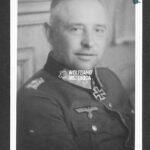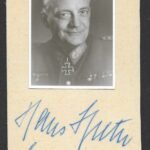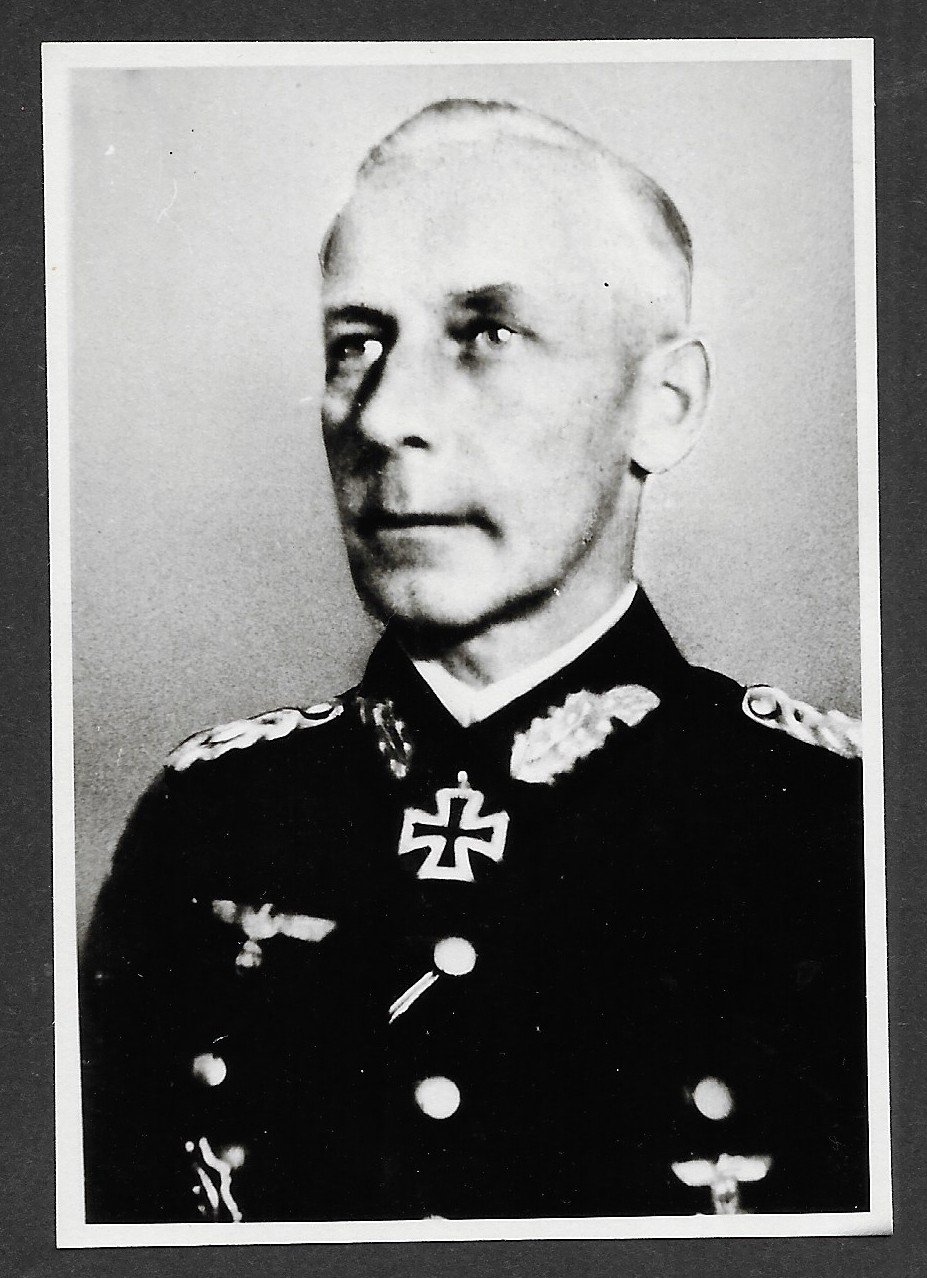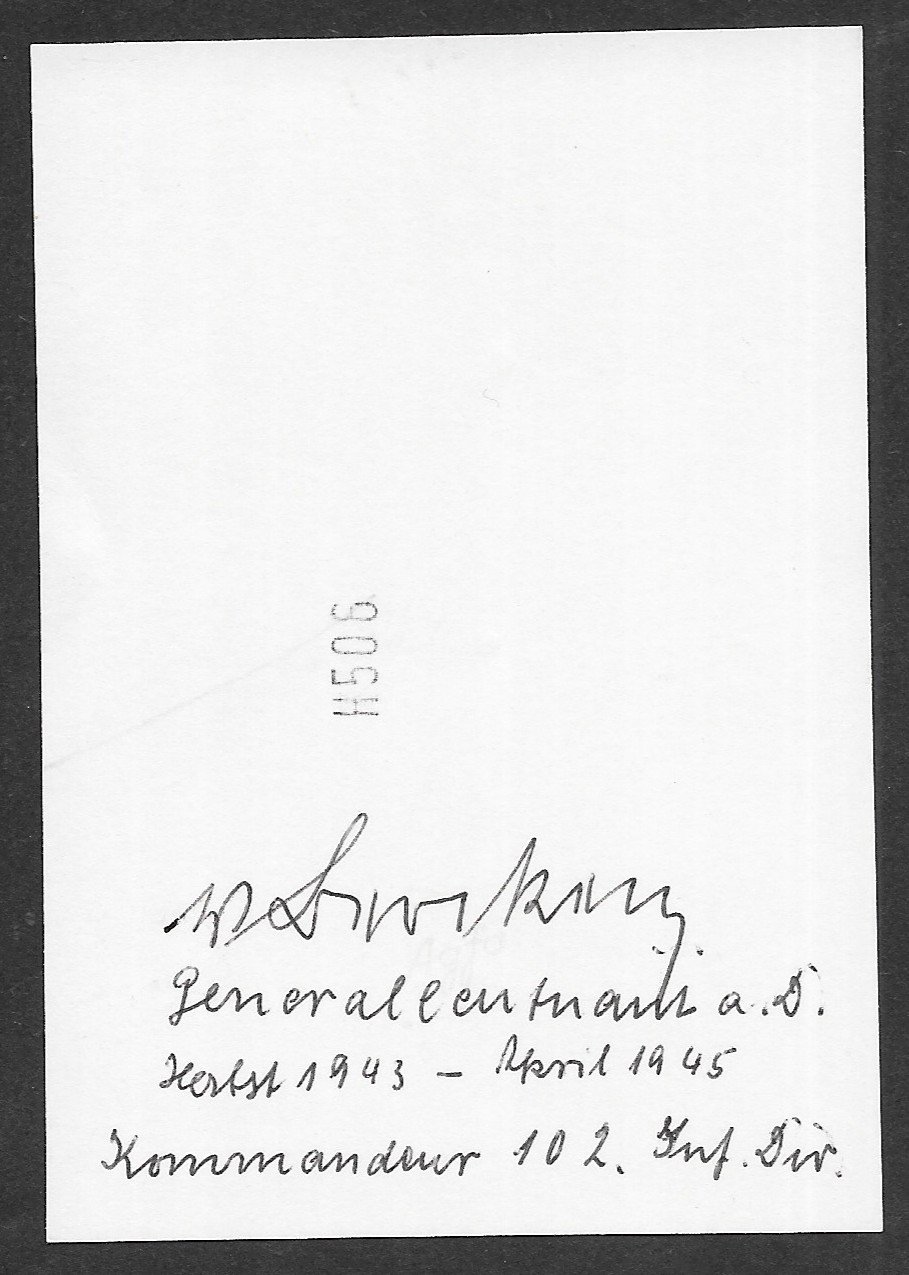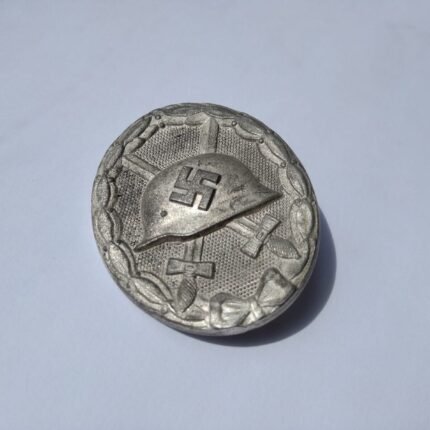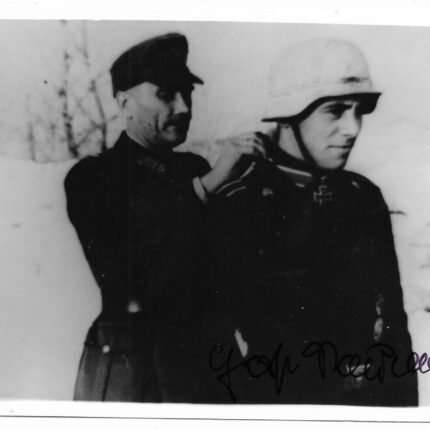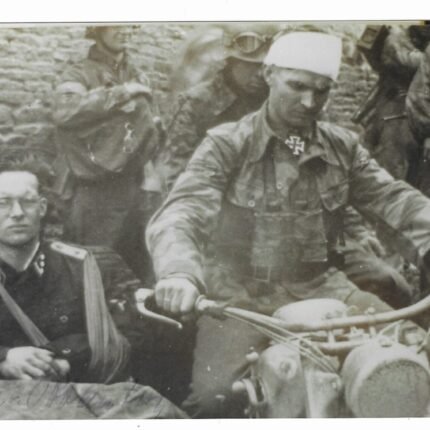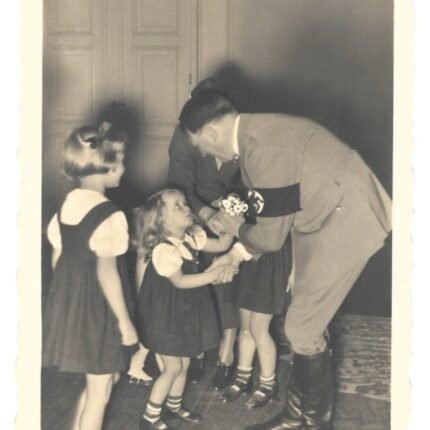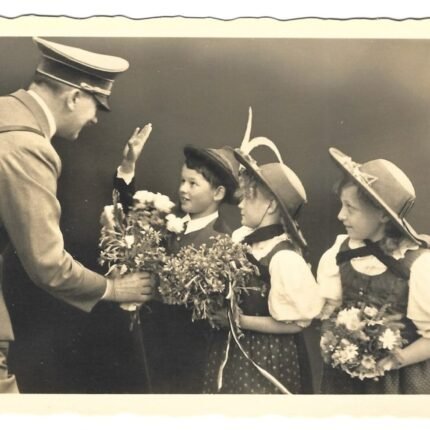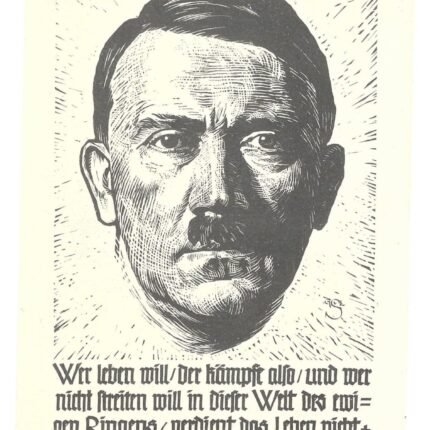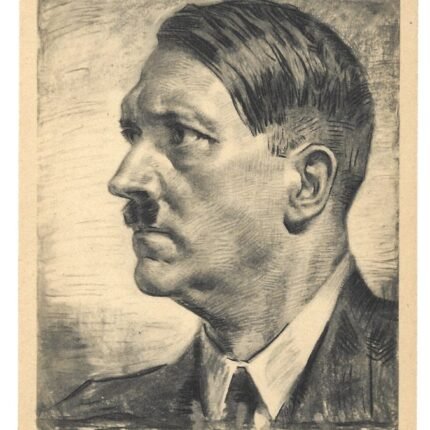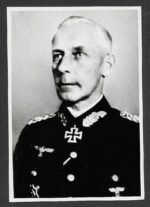
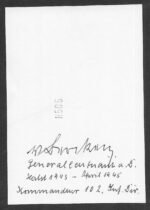
Werner von Bercken – 102. Infanterie-Division
€40,00
Original Postwar Signature on a Postwar Photo of Werner von Bercken. Generalleutnant Werner von Bercken (8 February 1897, Oppeln/Silesia † 29 Februry 1976, Röttgen/North Rhine-Westphalia) was a German Army officer who rose to the rank of Generalleutnant during the Second World War. He was a decorated front-line divisional commander on the Eastern Front, earning the German Cross in Gold and the Knight’s Cross of the Iron Cross, as well as a citation in the official Wehrmachtbericht.
Awards and Decorations:
-
Wehrmachtbericht Mention – 10 December 1943.
-
German Cross in Gold (Deutsches Kreuz in Gold) – 1 June 1944, as Generalmajor and Kommandeur of 102. Infanterie-Division.
-
Knight’s Cross of the Iron Cross (Ritterkreuz des Eisernen Kreuzes) – 23 October 1944, as Generalleutnant and Kommandeur of 102. Infanterie-Division.
Awarded for his leadership in the defensive fighting near Novgorod along the Narew river, where his division successfully prevented repeated attempts by the Soviet 47th Army to force a crossing.
Career Highlights:
-
Entered the German Army during the First World War.
-
Continued service in the interwar Reichswehr and Wehrmacht, rising through the ranks.
-
Commanded the 102. Infanterie-Division, where he earned both the German Cross in Gold and the Knight’s Cross for his determined leadership in the heavy defensive battles of 1943–44.
-
Promoted to Generalleutnant in recognition of his service.
-
Captured by the Soviets in April 1945 and held as a prisoner of war until October 1955.
-
Returned to Germany after his release, living in North Rhine-Westphalia until his death in 1976.
Item Details:
-
Authentic postwar signature of Generalleutnant Werner von Bercken.
-
Signed on a postwar photograph. Smaller size.
-
Condition: Clear and well-preserved autograph.
Collector’s Note:
Werner von Bercken’s decorations — the German Cross in Gold, the Knight’s Cross, and a Wehrmachtbericht mention — place him among the recognized divisional commanders of the Eastern Front. His long Soviet captivity (1945–1955) adds historical context, making his autograph a compelling piece for collectors of German Army leadership and Eastern Front memorabilia.
Out of stock
Original Postwar Signature on a Postwar Photo of Werner von Bercken. Generalleutnant Werner von Bercken (8 February 1897, Oppeln/Silesia † 29 Februry 1976, Röttgen/North Rhine-Westphalia) was a German Army officer who rose to the rank of Generalleutnant during the Second World War. He was a decorated front-line divisional commander on the Eastern Front, earning the German Cross in Gold and the Knight’s Cross of the Iron Cross, as well as a citation in the official Wehrmachtbericht.
Awards and Decorations:
-
Wehrmachtbericht Mention – 10 December 1943.
-
German Cross in Gold (Deutsches Kreuz in Gold) – 1 June 1944, as Generalmajor and Kommandeur of 102. Infanterie-Division.
-
Knight’s Cross of the Iron Cross (Ritterkreuz des Eisernen Kreuzes) – 23 October 1944, as Generalleutnant and Kommandeur of 102. Infanterie-Division.
Awarded for his leadership in the defensive fighting near Novgorod along the Narew river, where his division successfully prevented repeated attempts by the Soviet 47th Army to force a crossing.
Career Highlights:
-
Entered the German Army during the First World War.
-
Continued service in the interwar Reichswehr and Wehrmacht, rising through the ranks.
-
Commanded the 102. Infanterie-Division, where he earned both the German Cross in Gold and the Knight’s Cross for his determined leadership in the heavy defensive battles of 1943–44.
-
Promoted to Generalleutnant in recognition of his service.
-
Captured by the Soviets in April 1945 and held as a prisoner of war until October 1955.
-
Returned to Germany after his release, living in North Rhine-Westphalia until his death in 1976.
Item Details:
-
Authentic postwar signature of Generalleutnant Werner von Bercken.
-
Signed on a postwar photograph. Smaller size.
-
Condition: Clear and well-preserved autograph.
Collector’s Note:
Werner von Bercken’s decorations — the German Cross in Gold, the Knight’s Cross, and a Wehrmachtbericht mention — place him among the recognized divisional commanders of the Eastern Front. His long Soviet captivity (1945–1955) adds historical context, making his autograph a compelling piece for collectors of German Army leadership and Eastern Front memorabilia.


